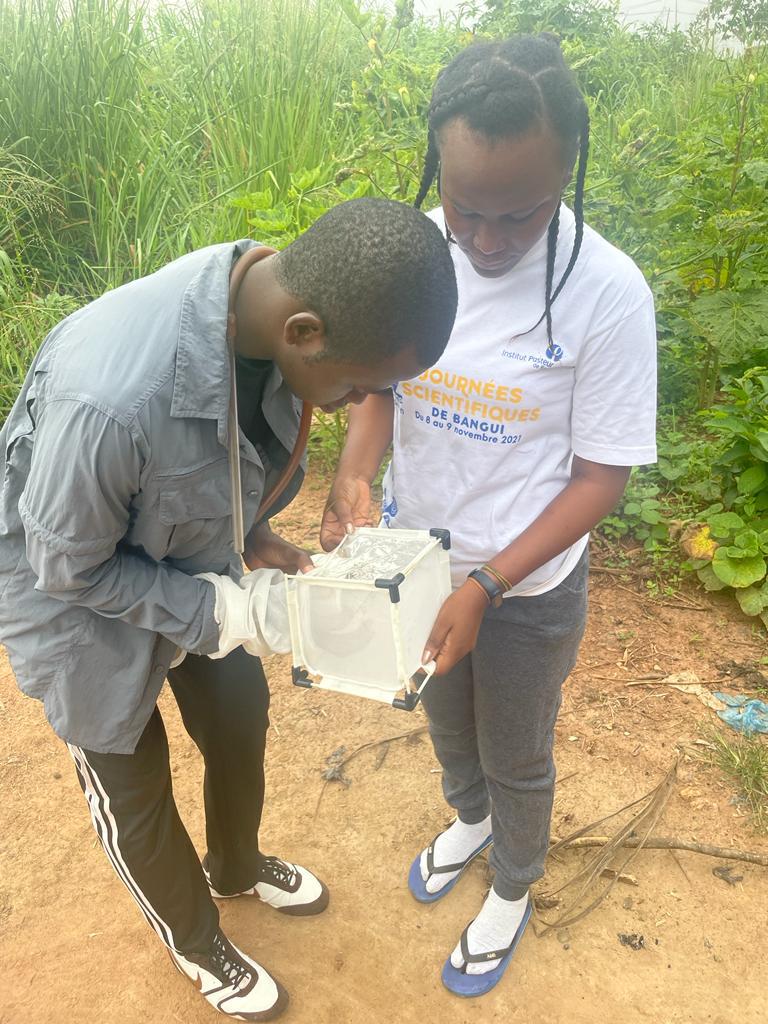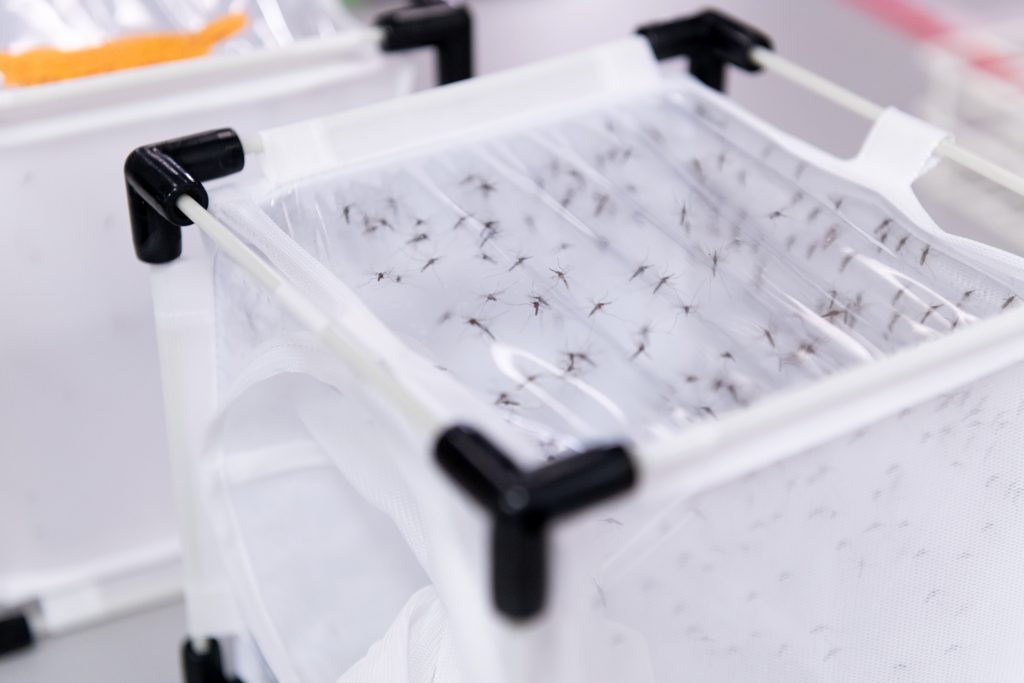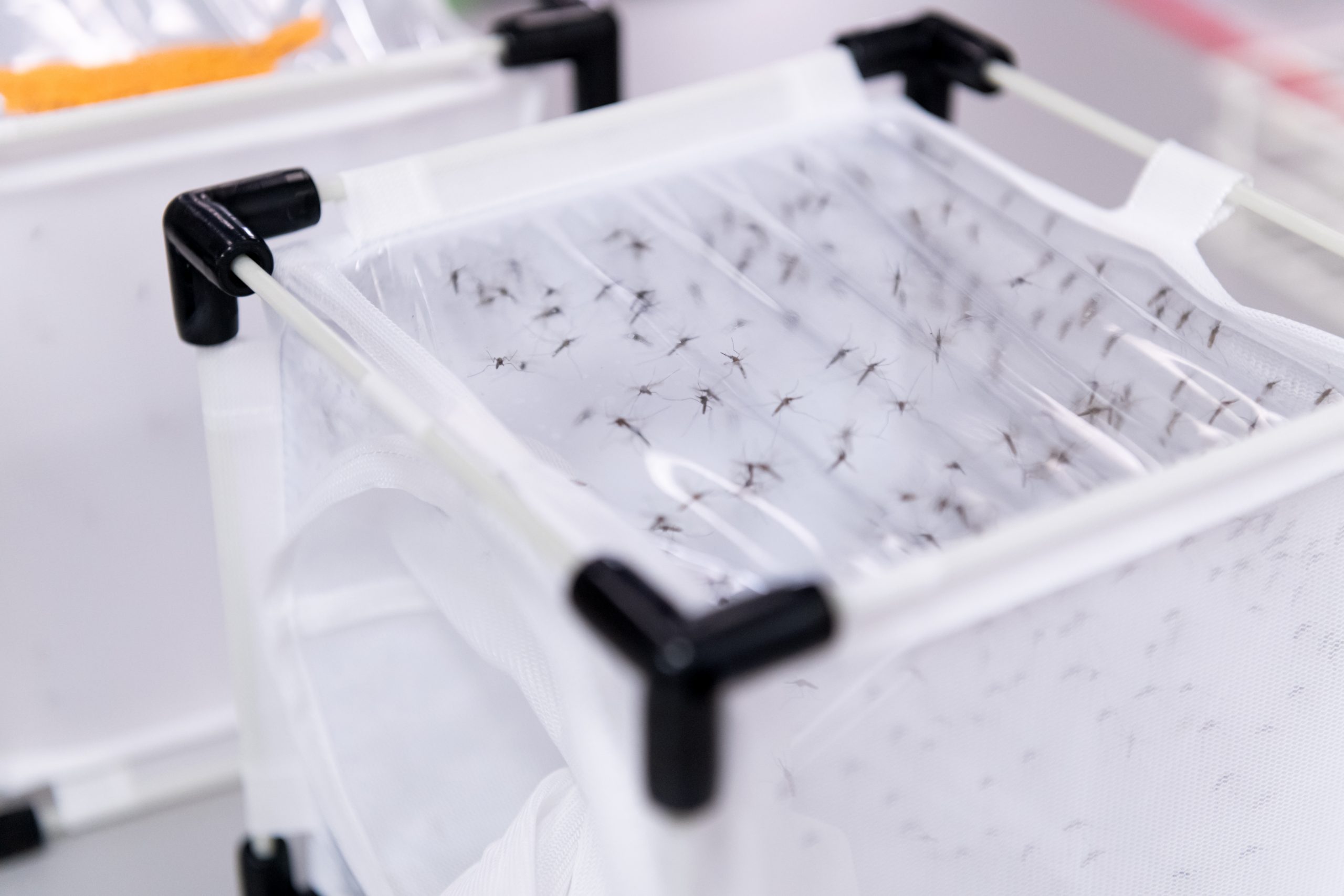WP2-Validation Across Species and Field Settings
WP2 – Validation Across Species and Field Settings
Lead: University of Perugia, UNIPG (Italy)

WP2 – Validation Across Species and Field Settings
Lead: University of Perugia, UNIPG (Italy)


Roberta Spaccapelo. Send Email
This work package aims to translate findings collected in WP1 for An. gambiae to other mosquito species, to validate the biological relevance of selected targets and the functional conservation of mating-related genes. We will prioritise other disease-transmitting mosquito species of relevance from a public and animal health perspective in Southern Europe, such as Culex pipiens and Aedes albopictus, but potentially expanding to other species. The consortium will use a combined transcriptomic and behavioral approach to identify potential molecular targets to disrupt mosquito audition and mating in these mosquito species.
WP2 also aims at improving our understanding of mating and swarming behaviour in natural mosquito populations. Research activities include field work in Madagascar and Central African Republic to study the mating and swarming behaviour of natural mosquito populations and uncover differences across species that inform the development of tailored vector control tools to target them.


Credit: Claire Sangbakembi

Credit: Claire Sangbakembi

Roberta Spaccapelo. Send Email
This work package aims to translate findings collected in WP1 for An. gambiae to other mosquito species, to validate the biological relevance of selected targets and the functional conservation of mating-related genes. We will prioritise other disease-transmitting mosquito species of relevance from a public and animal health perspective in Southern Europe, such as Culex pipiens and Aedes albopictus, but potentially expanding to other species. The consortium will use a combined transcriptomic and behavioral approach to identify potential molecular targets to disrupt mosquito audition and mating in these mosquito species.
WP2 also aims at improving our understanding of mating and swarming behaviour in natural mosquito populations. Research activities include field work in Madagascar and Central African Republic to study the mating and swarming behaviour of natural mosquito populations and uncover differences across species that inform the development of tailored vector control tools to target them.
Tasks
- Bioinformatic analysis in relevant mosquito species.
- Gene knockout generation in relevant mosquito species.
- Phenotypic testing.
- Swarming behaviour studies in the field.
Expected output
Robust confirmation of candidate genes’ relevance across species and contexts, ensuring the translational validity of STOP-MATING’s discoveries.
